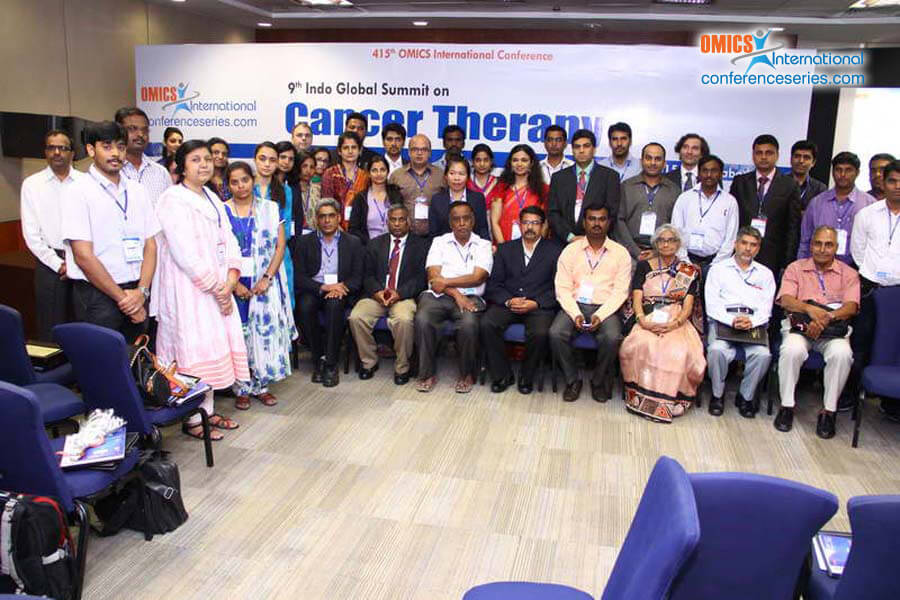
Nilabja Sikdar
Indian Statistical Institute, India
Title: Somatic mutational profile of candidate driver genes related with pancreatic ductal adenocarcinoma and periampullary adenocarcinoma in Indian patient population
Biography
Biography: Nilabja Sikdar
Abstract
Pancreatic and periampullary cancers remain one of the most lethal malignancies as it is diagnosed in very later stage. We have collected hitopathologically diagnosed fresh tumor and peripheral blood samples for each patient from hospitals of eastern India. We performed customized exon sequencing for 412 cancer related genes in 6 pancreatic ductal adeno-carcinomas (PDAC\'s) and 2 periampullary carcinoma patients. From our study, we observed on an average, 30,000 non-synonymous somatic SNV\'s, 295 LOH SNV\'s and very less number of somatic exonic Indel mutations for each tumor. From the previously reported candidate driver genes for PDAC\'s, we extensively observed large number of mutations in BRCA1, BRCA2, MET, ERBB2, FGFR1, PALB2, COL1A1 and EGFR genes with respect to other candidate genes. Whereas KRAS, TP53, SMAD4, CDKN2A showed comparatively lesser number of mutations in every tumor including peri-ampullary adenocarcinomas. For all 8 tumor samples we found similar patterns of mutational frequency distributions for individual genes. So PDAC tumors and periampulary tumors show similar mutational landscape in Indian population structure. However, KRAS, SMAD4, TP53 and CDKN2A showed very high mutation frequencies in PDAC from Caucasian populations but in our population the mutation frequencies of those genes were relatively less from the other candidate genes. Most of the heavily mutated candidate driver genes we observed in our findings are involved in PI3-AKT pathway. This finding may explain any alternative pathway that might be responsible to drive the cancer development. This novel finding may explain the new therapeutic approach for treatment of pancreatic and periampullary adenocarcinomas.

